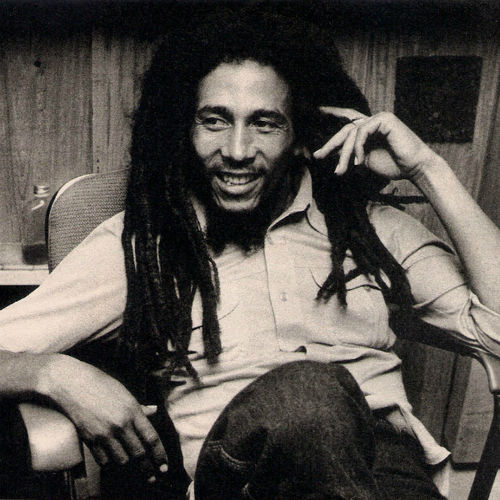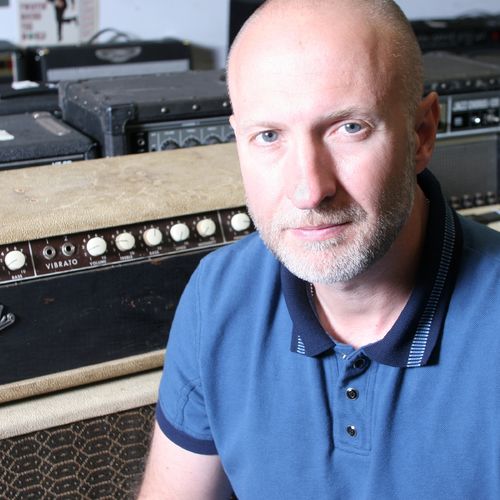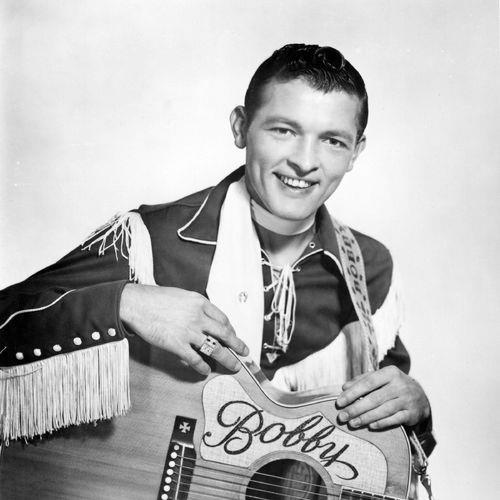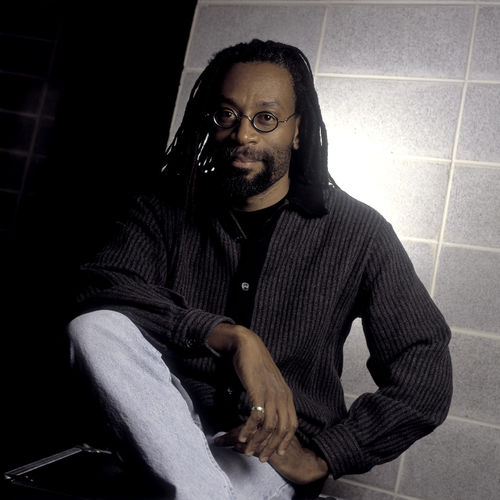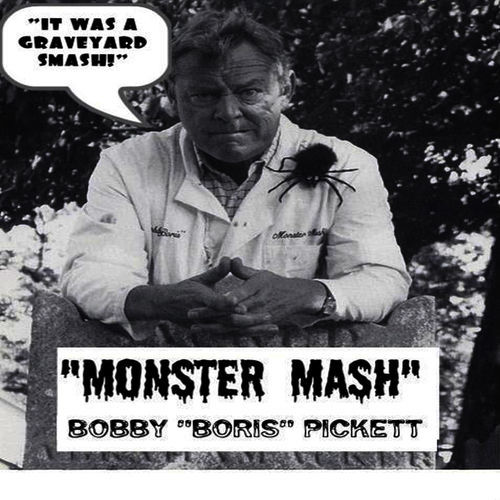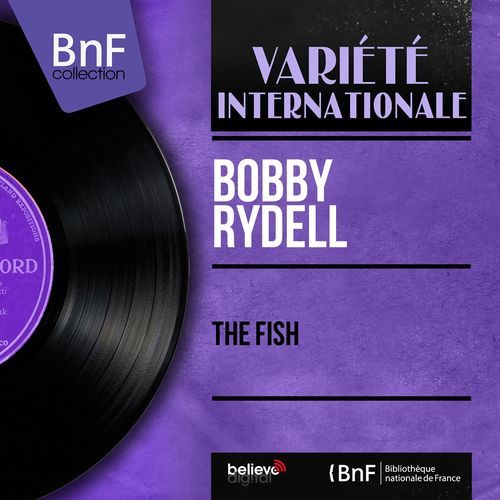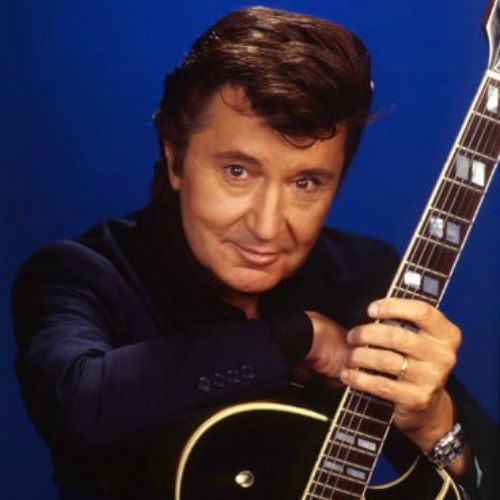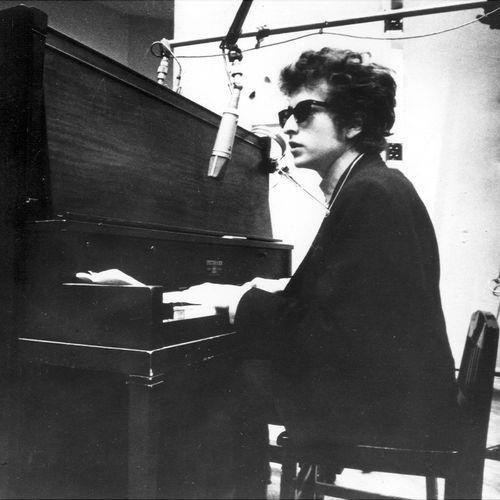
Biografia:
Robert Allen Zimmerman, mais conhecido como Bob Dylan nasceu em Minnesota no ano de 1941. Aos dez anos de idade Dylan escreveu seus primeiros poemas e, ainda adolescente, aprendeu piano e guitarra sozinho. Começou cantando em grupos de rock, imitando Little Richard e Buddy Holly, mas quando foi para a Universidade de Mineapólis em 1959, voltou-se para a folk music. O primeiro álbum de Dylan foi lançado em 1962 e intitulado"Bob Dylan". No ano seguinte ele lança "The Freewhellin' Bob Dylan" que trazia "Blowin' In The Wind"
Read more on Last.fm

Outras músicas:
- 4th Time Around
- Abandoned Love
- Absolutly Sweet Marie
- All Along The Watch Tower
- All Along The Watchtower
- All The Tired Horses
- Another Side
- Baby Let Me Follow You Down
- Ballad Of A Thin Man
- Blowin In The Wind
- Blowin' In The Wind
- Blowing In The Wind
- Bob Dylan Album
- Bob Dylan's Dream
- Boots Of Spanish Leather
- Born In Time
- Bucket Of Rain
- Can't Wait
- Changing Of The Guards
- Dear Landlord
- Desolation Row
- Dignity
- Dirge
- Don't Think Twice
- Don't Think Twice (it's Alright)
- Don't Think Twice It's Alright
- Everything Is Broken
- Farewell Angelina
- Forever Young
- George Jackson
- Girl From The North Country
- God Knows
- Hard Rain
- Highlands
- Honey, Just Allow Me One More Chance
- Hurricaine
- Hurricane
- I And I
- I Shall Be Released
- I Want You
- I Want You So Bad
- I'll Be Your Baby Tonight
- I'm Not There
- Idiot Wind
- In The Mood For You
- Isis
- It Aint Me Babe
- It Takes A Train To Cry
- It's All Over Now Baby Blue
- Joey
- Just Like A Woman
- Knockin On Heavens Door
- Knockin' On Heavans Door
- Knockin' On Heaven's Door
- Knocking On Heaven Door
- Knocking On Heaven's Door
- Knocking On Heavens Door
- Lay Down You Weary Tune
- Lay Lady Lay
- Like A Rolling Stone
- Lilly Rosemary & The Jack Of Hearts
- Love Minus Zero
- Maggies Farm
- Make You Feel My Love
- Masters Of War
- Million Dollar Bash
- Mr Tambourine Man
- Mr. Tambourine Man
- One More Cup Of Coffee (valley Below)
- Outlaw Blues
- Rainy Day Woman #12 And #35
- Romance In Durango
- Sad-eyed Lady Of The Lowlands
- She Belongs To Me
- Shelter From The Storm
- Simple Twist Of Fate
- Subterranean Homesick Blues
- Suze (the Cough Song)
- Tambourine Man
- Tangled Up In Blue
- The Ballad Of Frankie Lee And Judas Priest
- The Lonesome Death Of Hattie Carroll
- The Man In Me
- The Times They Are A Changin
- The Times They Are A-changin'
- The Times They Are A-changing
- Thunder On The Mountain
- Times They Are A-changin
- To Make You Feel My Love
- Tomorrow Is A Long Time
- Visions Of Johanna
- When The Deal Goes Down
- Workingmans Blues 2
- You're Gonna Make Me (lonesome When You Go)
- Blowin’ In The Wind
- Don’t Think Twice, It’s All Right
- One More Cup Of Coffee
- The Times They Are a-Changin’
- You’re Gonna Make Me Lonesome When You Go
- 1913 Massacre
- 2 X 2
- 2020 Vision
- A Couple More Years
- A Hard Rains A Gonna Fall
- A Hard Rains Gonna Fall
- A Satisfied Mind
- A Thousand Miles Behind
- Abraham Martin And John
- Absolutely Sweet Marie
- Acne
- Aint Gonna Go To Hell For Anybody
- Aint No More Cane
- Aint Talkin
- Alberta
- All I Really Want To Do
- All My Tomorrows
- Angelina
- Annies Going To Sing Her Song
- Any Day Now
- Arthur Mcbride
- As I Go Ramblin Round
- As I Went Out One Morning
- Autumn Leaves
- Baby Aint That Fine
- Baby Im In The Mood
- Baby Please Stop Crying
- Baby Stop Crying
- Ballad In Plain D
- Ballad Of Donald White
- Ballad Of Hollis Brown
- Belle Isle
- Beyond The Horizon
- Billy 1
- Billy 4
- Black Crow Blues
- Black Diamond Bay
- Black Jack Davey
- Blind Willie Mctell
- Blonde On Blonde
- Blood In My Eyes
- Blood On The Tracks
- Bob Dylans 115Th Dream
- Bob Dylans Blues
- Bob Dylans Dream
- Braggin
- Brownsville Girl
- Buckets Of Rain
- California
- Call Letter Blues
- Can You Please Crawl Out Your Window
- Canadee
- Cant Help Falling In Love
- Cant Leave Her Behind
- Cant Wait
- Caribbean Wind
- Catch The Wind
- Cats In The Well
- Chimes Of Freedom
- Christmas Island
- Clean Cut Kid
- Clothes Line Saga
- Cocaine
- Cold Irons Bound
- Coming From The Heart The Road Is Long
- Copper Kettle
- Corrina Corrina
- Country Pie
- Covenant Woman
- Crash On The Levee Down In The Flood
- Cross The Green Mountain
- Cry Awhile
- Cuban Missle Crisis
- Dark Eyes
- Days Of 49
- Death Dont Have No Mercy In This Land
- Death Is Not The End
- Desire
- Diamond Joe
- Dinks Song Fare Thee Well
- Disease Of Conceit
- Dixie
- Do Right To Me Baby Do Unto Others
- Do You Hear What I Hear
- Dont Fall Apart On Me Tonight
- Dont Think Twice Its All Right
- Dont Ya Tell Henry
- Down Along The Cove
- Dress It Up Better Have It All
- Drifters Escape
- Duncan And Brady
- Duquesne Whistle
- Early Roman Kings
- Edge Of The Ocean
- Emotionally Yours
- Empire Burlesque
- Eternal Circle
- Every Grain Of Sand
- Fare Thee Well
- Farewell
- Fixin To Die
- Floater Too Much To Ask
- Foot Of Pride
- Four Strong Winds
- Fourth Time Around
- Frankie And Albert
- Freedom For The Stallion
- Freight Train Blues
- Friday Fake Cover
- Froggie Went A Courtin
- From A Buick 6
- Full Moon And Empty Arms
- Gates Of Eden
- Girl I Left Behind
- Goin Down The Road Feeling Bad
- Goin To Acapulco
- Going Down To New Orleans
- Going Going Gone
- Gonna Change My Way Of Thinking
- Gospel Plow
- Gotta Serve Somebody
- Handsome Molly
- Handy Dandy
- Hard Times
- Hard Times In New York Town
- Hark The Herald Angels Sing
- Hazel
- He Was A Friend Of Mine
- Heart Of Mine
- Help Me Make It Through The Night
- Here Comes Santa Claus
- Hiding Too Long
- High Water For Charley Patton
- Highway 5
- Highway 51 Blues
- Highway 61 Revisited
- Hiram Hubbard
- Honey Just Allow Me One More Chance
- House Carpenter
- House Of The Rising Sun
- Hucks Tune
- I Aint Got No Home
- I Am A Lonesome Hobo
- I Believe In You
- I Cant Come In With A Broken Heart
- I Dont Believe You She Acts Like We Never Have Met
- I Dreamed I Saw St Augustine
- I Heard That Lonesome Whistle Blow
- I Pity The Poor Immigrant
- I Shall Be Free
- I Shall Be Free No 10
- I Threw It All Away
- I Was Young When I Left Home
- I Will Love Him
- Id Have You Anytime
- If Not For You
- If You Gotta Go Go Now
- If You See Her Say Hello
- If You See Her Say Hello Take 1
- Ill Be Home For Christmas
- Ill Be Your Baby Tonight
- Ill Keep It With Mine
- Ill Remember You
- Im A Fool To Want You
- Im Not Supposed To Care
- Im Not There
- In My Time Of Dyin
- In The Garden
- Is Your Love In Vain
- It Hurts Me Too
- It Takes A Lot To Laugh It Takes A Train To Cry
- Its All Over Now Baby Blue
- Its Alright Ma
- Its Alright Ma Im Only Bleeding
- Its Hard To Be Blind
- Jack
- James Alley Blues
- Jet Pilot
- Jim Jones
- John Brown
- John Wesley Harding
- Jokerman
- Just Like Tom Thumbs Blues
- Katies Been Gone
- Kingsport Town
- Lakes Of Pontchartrain
- Lay Down Your Weary Tune
- Leopard
- Let Me Die In My Footsteps
- License To Kill
- Life Is Hard
- Lily Of The West
- Lily Rosemary And The Jack Of Hearts
- Little Maggie
- Little Moses
- Living The Blues
- Lo And Behold
- Lonesome River
- Long Ago Far Away
- Long And Wasted Years
- Long Time Gone
- Lord Protect My Child
- Love Minus Zero No Limit Live
- Love Sick
- Making A Liar Out Of Me
- Mama You Been On My Mind
- Man Gave Names To All The Animals
- Man In The Long Black Coat
- Man Of Constant Sorrow
- Man Of Peace
- Man On The Street
- Mary Ann
- Meet Me In The Morning
- Melancholy Mood
- Million Miles
- Mississippi
- Moonshiner
- Most Likely You Go Your Way And Ill Go Mine
- Most Of The Time
- Motorpsycho Nitemare
- Mozambique
- Mr Bojangles
- Must Be Santa
- My Back Pages
- Narrow Way
- Nashville Skyline
- Neighborhood Bully
- Nettie Moore
- Never Gonna Be The Same Again
- Never Let You Go
- Never Say Goodbye
- New Morning
- New Pony
- No More Auction Block
- No Time To Think
- Nobody Cept You
- North Country Blues
- Not Dark Yet
- Nothing Was Delivered
- O Little Town Of Bethlehem
- Obviously Five Believers
- Odds And Ends
- Oh Babe It Aint No Lie
- Oh Mercy
- Oh Sister
- On A Night Like This
- On The Road Again
- One For The Road
- One Mans Loss
- One More Night
- One More Weekend
- One Of Us Must Know Sooner Or Later
- One Too Many Mornings
- Only A Hobo
- Only A Pawn In Their Game
- Open The Door Homer
- Orange Juice Blues
- Oxford Town
- Pastures Of Plenty
- Paths Of Victory
- Pay In Blood
- Peggy Day
- Percys Song
- Planet Waves
- Please Mrs Henry
- Pledging My Time
- Po Boy
- Poor Lazarus
- Positively 4Th St
- Positively 4Th Street
- Precious Angel
- Pressing On
- Pretty Boy Floyd
- Pretty Peggy
- Pretty Saro
- Queen Jane Approximately
- Quinn The Eskimo The Mighty Quinn
- Quit Your Low Down Ways
- Rainy Day Women 12 And 35
- Rambler Gambler
- Rambling Gambling Willie
- Red Cadillac And A Black Moustache
- Red River Shore
- Remember Me
- Restless Farewell
- Return To Me
- Ring Them Bells
- Rise Again
- River Theme
- Rock Salt And Nails
- Roll On John
- Ruben Remus
- Sad Eyed Lady Of The Lowlands
- Sally Girl
- San Francisco Bay Blues
- Santa Fe
- Sara
- Sarah Jane
- Saving Grace
- Scarlet Town
- See That My Grave Is Kept Clean
- Seeing The Real You At Last
- Senor
- Series Of Dreams
- Seven Days
- Shake Sugaree
- Shelter From The Storm Alternate
- Shes No Good
- Shooting Star
- Sign Language
- Sign On The Window
- Silver Dagger
- Silvio
- Simple Twist Of Fate Take 1A
- Slow Train
- Slow Train Coming
- Solid Rock
- Somebody Touched Me
- Someday Baby
- Someones Got A Hold Of My Heart
- Something There Is About You
- Somethings Burning Baby
- Song To Woody
- Soon After Midnight
- Spanish Harlem Incident
- Spanish Is The Loving Tongue
- Spirit On The Water
- Stand By Faith
- Standing In The Doorway
- Stay With Me
- Step It Up And Go
- Stop Crying
- Stuck Inside A Mobile
- Stuck Inside Of Mobile
- Sugar Baby
- Sweetheart Like You
- Talkin John Birch Paranoid Blues
- Talkin New York
- Talkin World War Iii Blues
- Talking Bear Mountain Picnic
- Tears Of Rage
- Tell Me
- Tell Me That It Isnt True
- Tell Ol Bill
- Tempest
- Temporary Like Achilles
- The Ballad Of A Thin Man
- The Christmas Song
- The Death Of Emmett Till
- The First Noel
- The Freewheelin Bob Dylan
- The French Girl
- The Grooms Still Waiting At The Altar
- The Love That Faded
- The Man In The Long
- The Mighty Quinn
- The Night We Called It A Day
- The Times They Are A
- The Times Weve Known
- They Killed Him
- Things Have Changed
- Thirsty Boots
- This Evening So Soon
- This Wheels On Fire
- Tight Connection To My Heart
- Tight Connection To My Heart Has Anybody Seen My Love
- Time Out Of Mind
- Time Passes Slowly
- Time Passes Slowly 1
- Time Passes Slowly 2
- Tiny Montgomery
- To Be Alone With You
- To Fall In Love With You
- To Ramona
- Tomorrow Night
- Tonight Ill Be Staying Here With You
- Too Much Of Nothing
- Tough Mama
- True Love Tends To Forget
- Trust Yourself
- Trying To Get To Heaven
- Two Sisters
- Unbelievable
- Under The Red Sky
- Under Your Spell
- Union Sundown
- Up To Me
- Vomit Express
- Wagon Wheel
- Walkin Down The Line
- Walking Down The Line
- Wallflower
- Walls Of Red Wing
- Watching The River Flow
- Water Is Wide
- Watered
- We Better Talk This Over
- Wedding Song
- Went To See The Gypsy
- What Can I
- What Can I Do For You
- What Good Am I
- What Was It You Wanted
- Whatll I Do
- When First Unto This Country
- When He Returns
- When I Paint My Masterpiece
- When The Night Comes Falling From The Sky
- When The Ship Comes In
- When You Gonna Wake Up
- Where Are You
- Where Are You Tonight Journey Through Dark Heat
- Where Teardrops Fall
- Who Killed Davey Moore
- Why Try To Change Me Now
- Wieviele Strassen
- Wigwam
- Wild Flower Garden
- Winterlude
- With God On Our Side
- World Gone Wrong
- Yea Heavy And
- Yea Heavy And A Bottle Of Bread
- You Aint Goin Nowhere
- You Angel You
- You Belong To Me
- You Dont Have To Do That
- Your A Big Girl Now
- Youre A Big Girl Now
- Youre Gonna Make Me Lonesome When You Go
- Youre Gonna Quit Me
- Youre No Good
Quatro anos de trabalho duro!Neste mês de maio fizemos quatro anos no ar. Continuamos trabalhando na divulgação deste maravilhoso instrumento, obrigado por participar da nossa história!
#----------------------------------PLEASE NOTE---------------------------------#
#This file is the author's own work and represents their interpretation of the #
#song. You may only use this file for private study, scholarship, or research. #
#------------------------------------------------------------------------------#
Bob Dylan - The Ballad of Frankie Lee and Judas Priest
from the album "John Wesley Harding"
Played on a steel string acoustic guitar
The song consists of one chord loop repeated throughout the song, this is:
C, Em, Dm, C
These can be fingered as open chords like so:
EADGBE EADGBE EADGBE EADGBE
x30210 022000 xx0231 x30210
C Em Dm C
However, the actual version seems to use barre chords thus:
C Em Dm C
E|--8--------7--------5--------8-----
B|--8--------8--------6--------8-----
G|--9--------9--------7--------9-----
D|--10-------9--------7--------10----
A|--10-------7--------5--------10----
E|--8--------x--------x--------8-----
The strumming pattern goes roughly like this:
d = down stroke
u = up stroke
1---2---3---4---
D* D D u D u
*with the first downstroke, only strum the bass notes of the chord
The Song:
intro - cycle through chord loop twice,
C Em
Well, Frankie Lee and Judas Priest,
Dm C
They were the best of friends.
C Em
So when Frankie Lee needed money one day,
Dm C
Judas quickly pulled out a roll of tens
C Em
And placed them on a footstool
Dm C
Just above the plotted plain,
C Dm
Sayin', "Take your pick, Frankie Boy,
Em C
My loss will be your gain."
Well, Frankie Lee, he sat right down
And put his fingers to his chin,
But with the cold eyes of Judas on him,
His head began to spin.
"Could ya please not stare at me like that," he said,
"It's just my foolish pride,
For sometimes a man must be alone
And this is no place to hide."
Well Judas, he just winked and said,
"All right, I'll leave you here,
But you'd better hurry up and choose
Which of those bills you want,
Before they all disappear."
"I'm gonna start my pickin' right now,
Just tell me where you'll be."
Judas pointed down the road
And said eternity,
"Eternity?" said Frankie Lee,
With a voice as cold as ice.
"That's right," said Judas Priest, "Eternity,
Though you might call it 'Paradise.'"
"I don't call it anything,"
Said Frankie Lee with a smile.
"All right," said Judas Priest,
"I'll see you after a while."
Well, Frankie Lee, he sat back down,
Feelin' low and mean,
When just then a passing stranger
Burst upon the scene,
Saying, "Are you Frankie Lee, the gambler,
Whose father's deceased?
Well, if you are,
There's a fellow callin' you down the road
And they say his name is Priest."
"Oh, yes, he is my friend,"
Said Frankie Lee in fright,
"I do recall him very well,
In fact, he just left my sight."
"Yes, that's the one," said the stranger,
As quiet as a mouse,
"Well, my message is, he's down the road,
Stranded in a house."
Well, Frankie Lee, he panicked,
He dropped ev'rything and ran
Until he came unto the spot
Where Judas Priest did stand.
"What kind of house is this," he said,
"Where I have come to roam?"
"It's not a house," says Judas Priest,
"It's not a house, it's a home."
Well, Frankie Lee, he trembled,
He soon lost all control
Over everything which he had made
While the mission bells did toll.
He just stood there staring
At that big house as bright as any sun,
With four and twenty windows
And a woman's face in every one.
Well, up the stairs ran Frankie Lee
With a soulful, bounding leap,
And, foaming at the mouth,
He began to make his midnight creep.
For sixteen nights and days he raved,
But on the seventeenth he burst
Into the arms of Judas Priest,
Which is where he died of thirst.
No one tried to say a thing
When they carried him out in jest,
Except, of course, the little neighbour boy
Who carried him to rest.
And he just walked along, alone,
With his guilt all well concealed,
And muttered underneath his breath,
"Nothing is revealed."
Well, the moral of the story,
The moral of this song,
Is simply that one should never be
Where one does not belong.
So when you see your neighbour carryin' somethin',
Help him with his load,
And don't go mistaking Paradise
For that home across the road.
Transcribed by Phil - [email protected]
#This file is the author's own work and represents their interpretation of the #
#song. You may only use this file for private study, scholarship, or research. #
#------------------------------------------------------------------------------#
Bob Dylan - The Ballad of Frankie Lee and Judas Priest
from the album "John Wesley Harding"
Played on a steel string acoustic guitar
The song consists of one chord loop repeated throughout the song, this is:
C, Em, Dm, C
These can be fingered as open chords like so:
EADGBE EADGBE EADGBE EADGBE
x30210 022000 xx0231 x30210
C Em Dm C
However, the actual version seems to use barre chords thus:
C Em Dm C
E|--8--------7--------5--------8-----
B|--8--------8--------6--------8-----
G|--9--------9--------7--------9-----
D|--10-------9--------7--------10----
A|--10-------7--------5--------10----
E|--8--------x--------x--------8-----
The strumming pattern goes roughly like this:
d = down stroke
u = up stroke
1---2---3---4---
D* D D u D u
*with the first downstroke, only strum the bass notes of the chord
The Song:
intro - cycle through chord loop twice,
C Em
Well, Frankie Lee and Judas Priest,
Dm C
They were the best of friends.
C Em
So when Frankie Lee needed money one day,
Dm C
Judas quickly pulled out a roll of tens
C Em
And placed them on a footstool
Dm C
Just above the plotted plain,
C Dm
Sayin', "Take your pick, Frankie Boy,
Em C
My loss will be your gain."
Well, Frankie Lee, he sat right down
And put his fingers to his chin,
But with the cold eyes of Judas on him,
His head began to spin.
"Could ya please not stare at me like that," he said,
"It's just my foolish pride,
For sometimes a man must be alone
And this is no place to hide."
Well Judas, he just winked and said,
"All right, I'll leave you here,
But you'd better hurry up and choose
Which of those bills you want,
Before they all disappear."
"I'm gonna start my pickin' right now,
Just tell me where you'll be."
Judas pointed down the road
And said eternity,
"Eternity?" said Frankie Lee,
With a voice as cold as ice.
"That's right," said Judas Priest, "Eternity,
Though you might call it 'Paradise.'"
"I don't call it anything,"
Said Frankie Lee with a smile.
"All right," said Judas Priest,
"I'll see you after a while."
Well, Frankie Lee, he sat back down,
Feelin' low and mean,
When just then a passing stranger
Burst upon the scene,
Saying, "Are you Frankie Lee, the gambler,
Whose father's deceased?
Well, if you are,
There's a fellow callin' you down the road
And they say his name is Priest."
"Oh, yes, he is my friend,"
Said Frankie Lee in fright,
"I do recall him very well,
In fact, he just left my sight."
"Yes, that's the one," said the stranger,
As quiet as a mouse,
"Well, my message is, he's down the road,
Stranded in a house."
Well, Frankie Lee, he panicked,
He dropped ev'rything and ran
Until he came unto the spot
Where Judas Priest did stand.
"What kind of house is this," he said,
"Where I have come to roam?"
"It's not a house," says Judas Priest,
"It's not a house, it's a home."
Well, Frankie Lee, he trembled,
He soon lost all control
Over everything which he had made
While the mission bells did toll.
He just stood there staring
At that big house as bright as any sun,
With four and twenty windows
And a woman's face in every one.
Well, up the stairs ran Frankie Lee
With a soulful, bounding leap,
And, foaming at the mouth,
He began to make his midnight creep.
For sixteen nights and days he raved,
But on the seventeenth he burst
Into the arms of Judas Priest,
Which is where he died of thirst.
No one tried to say a thing
When they carried him out in jest,
Except, of course, the little neighbour boy
Who carried him to rest.
And he just walked along, alone,
With his guilt all well concealed,
And muttered underneath his breath,
"Nothing is revealed."
Well, the moral of the story,
The moral of this song,
Is simply that one should never be
Where one does not belong.
So when you see your neighbour carryin' somethin',
Help him with his load,
And don't go mistaking Paradise
For that home across the road.
Transcribed by Phil - [email protected]

